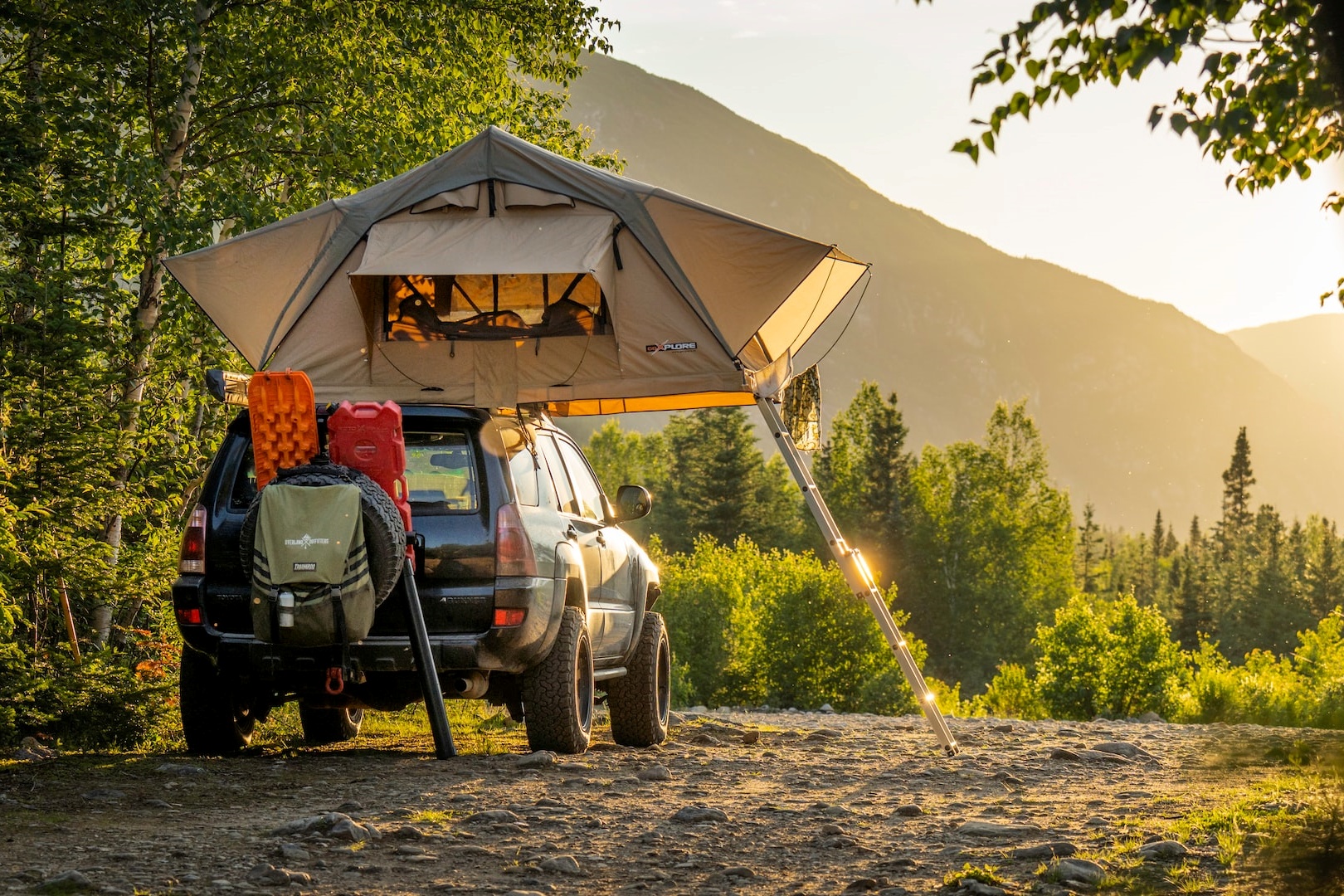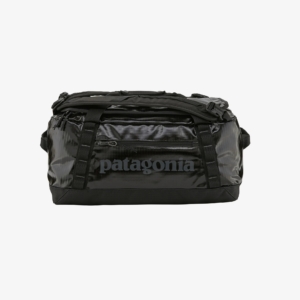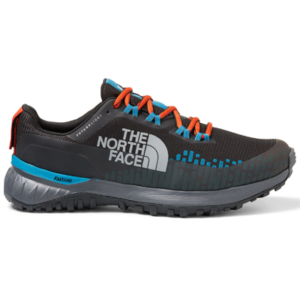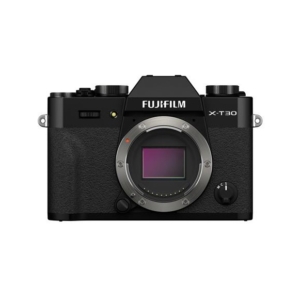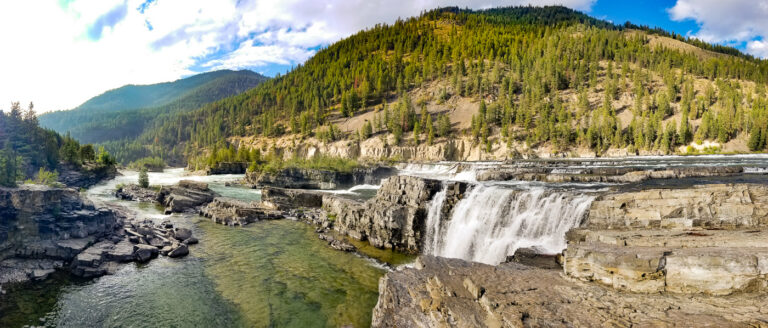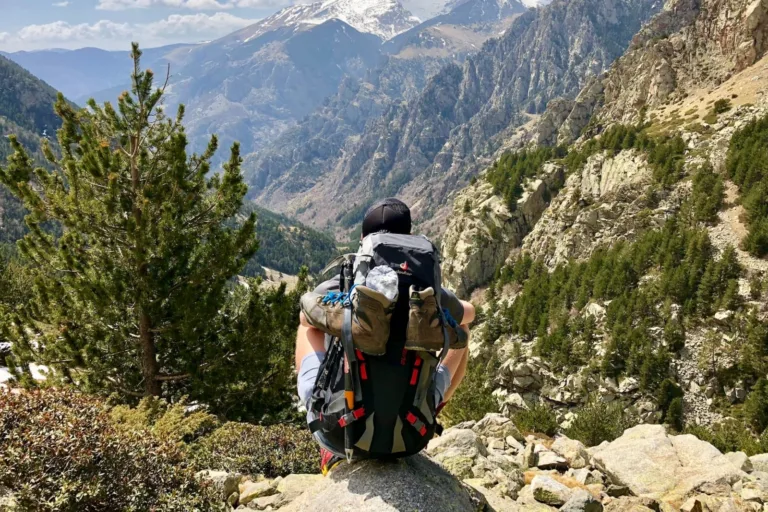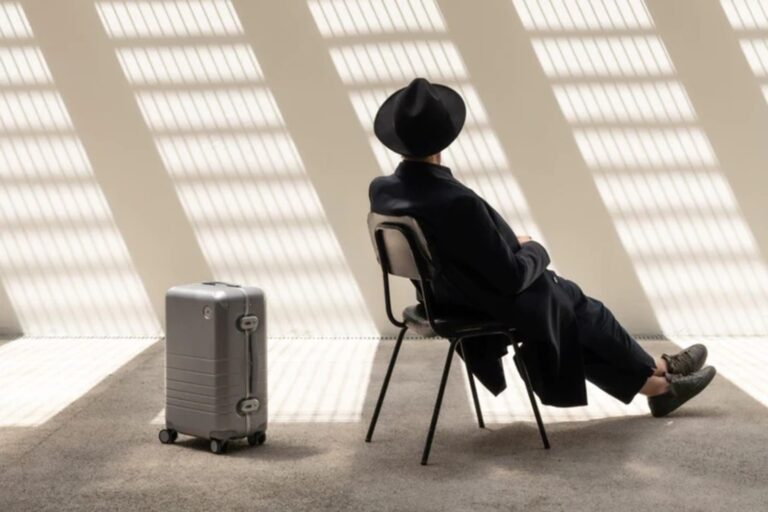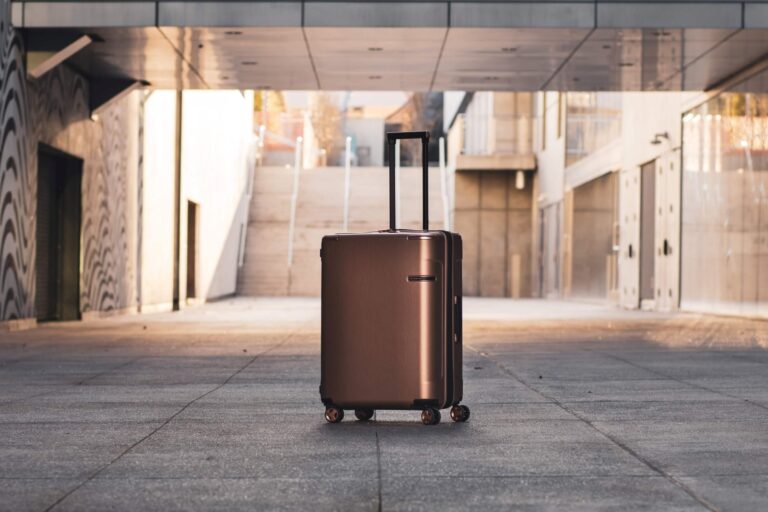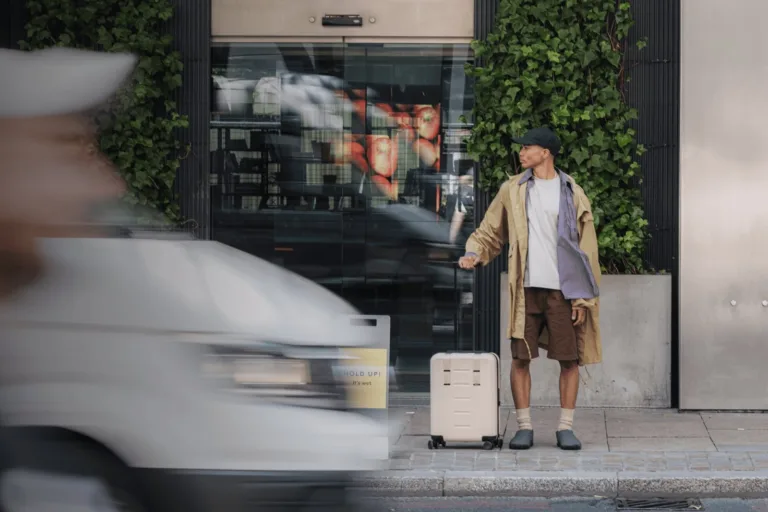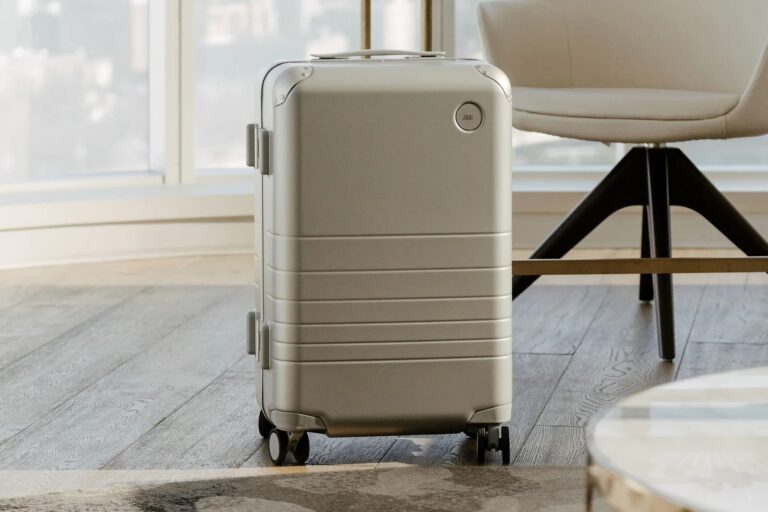Car Camping Essentials: Ultimate Packing Checklist [2023]
[ad_1]
Car camping is one of my favorite ways to travel the country. It’s simple and inexpensive, and it’s an amazing gateway to the great outdoors. Whether you want to visit the national parks, set up a base camp for outdoor adventures, or just save money on a road trip, car camping is a fantastic way to travel.
If you’ve never tried car camping, it can be intimidating trying to decide what gear you need to bring, what you should leave behind, and what to be prepared for. This guide is meant to be your ultimate checklist for the car camping essentials to bring on your next trip.
I spend dozens of nights in my car or under the stars every year, and these are the items I’ve found make for a successful car camping trip.
Shelter and Sleeping
One of the most important considerations when car camping is making sure you get a good night’s sleep. It’s hard to beat waking up to sunrise after a great night outside, but if you don’t have the right gear, sleeping outdoors can be uncomfortable and difficult.
Sleeping Pad/Air Mattress
A good sleeping pad or air mattress is the most essential piece of camping gear to make sure you get a good night’s sleep outside. Just like your mattress at home, your sleeping pad can be make-or-break when it comes to being comfortable while car camping.
For years I slept on just a half-inch thick foam sleeping pad when camping. It was cheap, lightweight, and indestructible, but I also woke up every morning stiff and tired. When I finally upgraded to a quality inflatable pad, it changed my entire camping experience.
It is definitely worth exploring different options and investing in a sleeping pad that gives you quality sleep.
Another consideration when picking a sleeping pad is that your pad or mattress is the only thing between you and the cold floor of your car. Many good sleeping pads are designed to insulate you from the cold ground and keep you warmer at night. If you plan on car camping in cooler temps, I’d definitely recommend finding an insulated pad.
There are several routes to consider for a camping pad or mattress:
- The cheapest is a piece of memory foam that you can cut to fit in your car. This option is simple, inexpensive, comfortable, and warm. The biggest downside is that memory foam won’t pack down very well, so it will take up a lot of space in your car.
- Air mattresses are one of the best options available because they can be very comfortable while still packing down small. The Luno Life Air Mattress is a great option that is custom-made specifically to fit in the back of your vehicle. It’s definitely worth checking out for the easy setup, great comfort, and custom fit. Check out our full Luno Life mattress review.
- You can also use a lightweight inflatable sleeping pad. This is a great way to go if you also do much backpacking and want to use the same pad for both activities. The Therm-a-Rest Xlite is one of the best ultralight backpacking pads available and is insulated to keep you warm at night.
Camping Tent
While car camping typically means sleeping inside your car, for some people, bringing a tent and sleeping next to their car might be a better option. Here are a few reasons you may opt to bring a tent for your next camping trip:
- If you only have a sedan or compact car, sleeping in the back probably isn’t an option.
- If you are planning to stay at one campsite for several days, but still make day trips to nearby areas, it can be nice to set up a tent as a basecamp rather than packing and unpacking your car every night.
- Many camping tents are much more spacious than inside a car, so a tent might be better if you like lots of space to stand up and stretch out.
When it comes to picking a tent for car camping, you can choose between a more spacious tent specifically intended for campground use, or a smaller, lightweight backpacking tent.
Larger campground-specific tents are great because they are sturdy and spacious. Many tents nowadays are tall enough to stand up in, which is really nice when you are getting changed or just hanging out at the campsite.
The REI Skyward 4 Tent is a good car camping tent option that is well-built and has tons of space.
I personally do a lot of backpacking and already own a good backpacking tent, so I also use it for car camping. If you want to do both car camping and backpacking trips, owning just one backpacking tent is a great way to simplify your gear closet. These tents are lightweight and easy to set up, but they also don’t have nearly as much space as campground models.
Pillow
I don’t know how many times I’ve left on a trip only to realize I forgot my pillow. This is definitely something you don’t want to leave off your car camping checklist.
The nice thing about car camping is that you can just bring your normal pillow from home. There’s no reason to sacrifice on comfort here, so why not get comfy?
If you really want a more packable camping-specific pillow, there are several inflatable options that pack down super small, or compact camping pillows with traditional fill.
- For an inflatable pillow, I’d recommend the Aeros Down Ultralight Pillow from Sea to Summit. It has a layer of fluffy down that adds more comfort than most inflatable pillows.
- The Klymit Drift Camp Pillow is an easy to clean pillow that packs down fairly small and works great for car camping.
Sleeping Bag
Nothing puts a damper on good sleep in camp like waking up cold in the middle of the night. A quality sleeping bag is a key piece of gear on your car camping checklist for staying toasty warm at night.
If you don’t own a sleeping bag, you definitely can go car camping just with blankets from home. I’ve done warmer-weather car camping trips with just blankets before and had no problems.
That being said, a sleeping bag will definitely work better than blankets for keeping you warm when temperatures start to drop. Good sleeping bags can also pack down pretty small and are more convenient for camping.
One of the biggest decisions to make when buying a sleeping bag is whether to get one with down or synthetic insulation. Both options can be plenty warm and comfortable for camping, but there are some pretty significant differences. Here are some things to consider:
- Down sleeping bags are much more packable than synthetic, so they’ll take up less space in a backpack or in your car.
- Synthetic insulation is known for keeping some of its warmth even when wet, where down typically loses all insulating ability if it gets wet.
- Down is lighter weight than synthetic insulation.
- A synthetic sleeping bag will be considerably less expensive than down.
So which should you choose, down or synthetic?
If you plan to do any backpacking, a down sleeping bag is a no-brainer. Synthetic insulation is just too bulky and heavy to be practical. Down’s packability, warmth, and light weight make it ideal for backcountry trips.
If you are on a budget and know that you’ll be sticking to camping places you can drive to, then a synthetic bag can make sense, because it won’t matter how much it weighs if you don’t have to carry it.
Our best sleeping bag brands article has great information for finding a quality sleeping bag. Here are a few recommendations of quality sleeping bags to get you started:
- The Sea to Summit Ascent is a versatile down bag with great ventilation for warmer nights.
- The Marmot Trestles 15 is a high quality synthetic bag that’s great if you’re on a budget.
- The Therm-a-rest Ohm 20 is an ultralight bag for serious backpacking trips. It’s also warm and comfy enough for car camping.
Window Screens
Here’s a piece of advice: never sleep in your car with all the windows fully closed. You need good airflow to sleep well, and sleeping with closed windows will lead to humidity buildup in your car (especially in cool weather).
I’ve tried sleeping with closed windows during particularly cold nights and woke up to a car full of stuffy, damp air and windows coated in dew and ice. In my experience, poor airflow at night leads to poor sleep and waking up with headaches. Trust me, ventilation is key.
The problem with leaving windows open, though, is that, especially in summer or buggy areas, you can let in mosquitos or other insects. The solution is to get a mesh screen to cover your window that lets air circulate but keeps bugs out.
It’s not hard to buy a piece of inexpensive mesh fabric, cut it to size, and tuck it into your car windows. This DIY approach can take some fiddling around to get right, but if you’re on a budget it’s a great way to go.
If you are looking for a more fool-proof solution, these mesh window screens from Luno are super easy to fit over your windows and provide great breathability.
WeatherTech SunShades are another option. They protect your interior from the sun, but they also provide privacy at night. They come in kits that are custom fit for your car and have thin insulation so they can help keep your car warm on colder nights.
Privacy Curtain
Many campervans have a curtain that separates the cab of the vehicle from the back. Instead of using a sun shade to block out light from the windshield and front window, you can install a set of privacy curtains that separate the front seat of your car from the back!
The Luno Car Privacy Curtain is easy to set up, adjustable, and has super slick features like magnetic closure and toggles to keep the curtain open.
Cooking & Eating (Camp Kitchen)

Preparing delicious camp meals can go a long way toward transforming a good car camping trip into a great one. It really is hard to beat a tasty hot dinner while watching the sunset over the forest. Whether you want to try your hand at cooking gourmet dishes outdoors or just stick to simple, hearty food, good food prep gear is a must for car camping.
I’ve spent a lot of time recently trying to dial in my camp kitchen setup, and here are the key car camping essentials I’ve found you need to make easy outdoor cooking a reality.
Camp Stove & Fuel
Any camp kitchen starts with a stove. I’ve had bad experiences in the past with stoves being difficult to start, complicated to set up, or just taking up too much room in my car. Getting a good camp stove makes a big difference in taking the hassle out of meal prep.
For fuel, most camp stoves will either use propane, butane, or isobutane. This article gives a great breakdown of these three fuels and their pros and cons. Here’s a quick highlight of each fuel to help you pick.
- Propane is the cheapest and by far the easiest to find of the three fuels. It is the most common fuel type for car camping stoves.
- Butane is still relatively affordable and lightweight but doesn’t burn well at very low temperatures, so it’s not good for winter camping.
- Isobutane is very lightweight and comes in smaller canisters. It is mainly used for ultralight backpacking stoves.
I wouldn’t worry too much about which fuel to choose unless you are specifically wanting to do winter camping. In that case, propane is your best bet. Otherwise, pick the stove you want, and just make sure you know what kind of fuel you need to get for it.
After my experience using several different stoves while car camping, I recommend getting the smallest one that works for you. It can be tempting to get a larger, fancier stove, but after using a too-big stove last year, I can tell you that the hassle of packing and moving a big stove isn’t worth it.
Camp stoves have come a long way over the past few decades, and there are plenty of high-quality stoves to pick from. Here are three solid options you should check out:
- The Fore Winds Rugged Camp Stove is well-designed, durable, and has great adjustability for simmering. Be aware it only has one burner, so if you think you’ll want to be cooking two things at a time, this may not work for you.
- The Coleman Classic Camp Stove is a great propane two-burner that gets the job done without any high-tech features.
- On quick trips, I’ll often just take my backpacking stove because it’s so small and easy to use. The MSR PocketRocket 2 is a super reliable, lightweight backpacking stove that runs on isobutane.
Cutting Board
Whether you’re chopping vegetables for dinner in camp, or just need a clean surface for making a peanut butter sandwich, a simple cutting board is a great piece of camping gear to have along.
GSI Outdoors makes some awesome folding cutting boards that are lightweight and don’t take up much space.
Cooler
One advantage of car camping over backpacking is that you are able to bring fresh food. A good cooler is one of the key car camping essentials you should bring to keep food and drinks cool on the road.
Most coolers can also work as a makeshift table or bench in camp. I’ve made many a peanut butter and jelly sandwich on top of a cooler. Some even have cup holders built into the lid for holding your drinks in camp.
Coolers come in a huge range of size, effectiveness, and cost, so you’ll need to determine your priorities when buying a cooler. As a general rule, the more a cooler costs, the longer it will keep food cold.
I would recommend trying to limit the size of your cooler. Get a cooler that’s big enough for your typical trip rather than going overkill for every possibility. Remember, you have limited space in your car.
Here are a few recommendations for great coolers to look at:
- The Yeti Tundra 45 is a sturdy, high-performing cooler that’s built to last.
- For those on a budget, this Coleman cooler is simple and functional.
- If you want something a bit higher-tech than your typical box-of-ice cooler, the Dometic CFX3 45 is an electric-powered cooler that can run off the 12v outlet in your car.
Camp Chairs
It’s easy to overlook furniture for camping, but having a comfy chair to sit in at camp makes mealtime and just hanging out much more enjoyable. I love being able to get off my feet and kick back at camp after a long hike.
Nowadays you have a lot more options for camp chairs than you used to. From uber-comfy camp rocking chairs to compact collapsible chairs, there’s a lot to pick from.
My advice is to go for the most compact chair you can, unless you specifically want special features like reclining, rocking, or cup holders. I used to only have the traditional folding camp chairs, and now my collapsible ones take up a fraction of the space in my car. These smaller chairs are also surprisingly comfortable!
Here are a few recommendations for great chairs to keep you comfy at camp:
- If you want a chair you can also take backpacking, the Helinox Chair Zero weighs one pound and is incredibly compact.
- The REI Flexlite Camp Chair is a similar design to the Helinox, but it’s heavier, sturdier, and half the price. This is what I personally use on my camping trips, and I love it.
- For anyone who prioritizes in-camp comfort over weight and packability, GCI Outdoor has a great range of burlier camp chairs, including folding rocking chairs!
Cookware and Utensils
You don’t need to bring your full range of kitchen implements while camping, but there are some key car camping essentials you’ll likely want to have for your camp kitchen.
- Small pot for boiling or simmering meals
- Frying pan – You can just bring one from home or get a camping-specific frying pan with a folding handle.
- Spatula and stirring/serving spoon
- Mug for your morning tea or coffee – I like the United By Blue Insulated Travel Mug.
- Forks, spoons, and knives for each person in your group
- Plates and/or bowls for dishing out your delicious camp meals – The Sea to Summit Delta Camp Set includes a plate, bowl, cup, fork, spoon, and knife that are durable, inexpensive, and easy to clean in camp.
- Dish rag for washing up
- Dishwashing basin – if you’re camping for a few days or more, you’ll probably need to clean dishes at some point. A simple plastic bin that you can fill with water and use as a sink is a great help. There are even collapsible basins like the SOL Flat Pack Sink.
Water Container
Many established campgrounds have spigots with potable water, but if you camp in less developed areas there may not be accessible water. It is always a smart idea to bring your own supply of water when car camping.
For car camping trips, I recommend bringing a water container that can carry around five gallons. This is enough water to last one or two people a few days. Constantly finding places to refill water while traveling can be a hassle, so it’s really nice to bring it with you.
A good water container like this one will come with a spigot that makes easy work of tasks like filling water bottles, washing your hands, or brushing your teeth.
Water Bottle
A water bottle is one of those key car camping essentials you don’t want to leave home without.
There’s a lot of personal preference involved when it comes to picking a water bottle. Do you prefer vacuum insulated or lightweight?
It’s a good idea to bring a water bottle that works for multiple activities, from driving to your campsite to hitting the trail on a hike.
Organization and Storage
When you need to cram all your gear and supplies for a trip into the back of your car, things can get chaotic pretty fast. Packing and unpacking at camp can become a real chore, and it’s easy for small items to get lost in the jumble.
Organization is key for streamlining your car camping experience, and these items go a long way toward keeping your camping gear neat and easy to access.
Camp Box
This one may be easy to overlook, but I can’t say enough how great it is to have a dedicated camp box. This is where I keep most of my smaller car camping essentials ready to go at all times.
I love the ability to just grab my camp box, a few other pieces of gear, and a cooler of food and be ready to hit the road. For me, a camp box is definitely one of the car camping essentials.
A camp box can just be a large plastic bin. Typically I use it to store my stove and fuel, cookware, bug spray, sunscreen, toilet paper, lantern, and many of the other items that are just for camping. It keeps my car neat while traveling and makes it easier to find small items.
As a bonus, your camp box can do double-duty as a picnic table for meal prep and card games in camp.
You don’t need anything complicated with little compartments and organizer slots (though you can get as fancy as you’d like). I just recommend a sturdy plastic bin with a locking lid. This Rubbermaid Action Packer is what my family used growing up, and I still see it as the quintessential camp box.
Duffel Bag or Travel Pack
It’s pretty simple: you need something to store your clothes and other personal items. Any basic duffel bag will do the job, though something with a bit more organization may be nice. I like to use one bag for all my clothes, electronics, books, and toiletries, so having a few extra zippered pockets is always welcome.
If you’re in the market for a new bag for car camping, the Patagonia Black Hole Duffel is a popular option that is bombproof and water-resistant.
You can also check out our article on the best carry-on backpacks, which lists some bags that will also work well for car camping.
Shoe Bag
If you’ve spent much time car camping you’ve probably had the frustrating experience of waking up in the morning and not being able to find your shoes or only finding one.
Keeping track of shoes while camping can be difficult. I’m never sure what to do with shoes. I don’t really want to bring them inside the car or tent at night because they often smell and are covered in dirt. I also don’t like just leaving them outside where they might get soaked if it rains or stolen by raccoons (it happens).
A shoe bag is a great solution to have a dedicated place to keep your shoes without muddying up your sleeping area. Plus, when you get out of bed you won’t have to do search and rescue to find a missing shoe.
The Luno shoe bag is a great option that is water-resistant and uses magnets to attach to the outside of your car.
You can also just use a plastic garbage bag. Just make sure not to mistake it for actual garbage!
Personal Hygiene and Grooming
Just because you’re camping doesn’t mean you have to surrender to being dirty. By keeping up hygiene and staying moderately clean you’ll be more comfortable and enjoy your trip better.
Here are the important hygiene items to put on your car camping checklist, as well as a few luxury items to make camp time more comfortable.
Toothbrush and Toothpaste
It’s easy to forget a toothbrush and toothpaste while packing for a trip, but you definitely want to take care of your teeth. Just bring whatever you use at home.
Solar Shower
This definitely doesn’t fit in the “camping essentials” category, but if you want a real luxury, imagine a hot outdoor shower after a long day of adventure. It really doesn’t get much better than that.
A solar shower is essentially a large black container or collapsible bag that you fill with water and leave out in the sun to heat. You then hook up a short hose and you’ve got yourself a hot backcountry shower.
It may not seem like just using the sun for heat would work that well, but after a few hours in full sun, a solar shower can get every bit as hot as your shower at home.
This Nemo solar shower is awesome because it doesn’t require you to have the water tank overhead on your car or hanging from a tree to work, like most solar showers do. Instead, it has a foot pump that lets you pressurize the tank so it can be at ground level and still spray water.
The Sea-to-Summit Portable Pocket Shower is a a less expensive, more compact option that still works great for getting a hot shower in camp, as long as you have somewhere to hang it.
Soap and Shampoo
There’s no rule that you have to bathe while camping, but it sure can feel nice to get clean. Whether you’re staying in a campground with showers, bringing your own solar shower, or bathing in a river, you need to bring your own soap and shampoo to get yourself clean.
For campgrounds with showers, you can just bring the same soap and shampoo you use at home. It may just be good to get a smaller travel version so it takes up less room.
Many campgrounds don’t have showers, and of course, you won’t find them while dispersed camping outside established campgrounds. If you want to use a solar or bucket shower or wash in a river, make sure you get biodegradable soap.
Camping Towel
It’s good to bring a towel while camping whether for drying off after a shower or laying out on the shore of a pristine mountain lake. You can always just bring a towel from home, but a lightweight, packable travel towel can help save space in your car.
The PackTowel Personal Towel is a super-absorbent, super-packable towel that works great for car camping.
Sunscreen
Preventing sunburn is essential for staying comfortable while camping. Make sure you bring a tube of sunscreen along to protect your skin during outdoor adventures.
Pick a sunscreen with a high SPF rating for maximum protection from the sun. I also like to always bring a hat for some extra protection and to keep the sun out of my eyes.
Toilet Paper and Shovel
While many established campgrounds have toilets, it can be hit or miss whether they are stocked with toilet paper or not. Trust me, it’s best to come prepared. Finding that a campsite bathroom is out of toilet paper and you didn’t bring any is never a pleasant experience.
If you spend much time camping in undeveloped areas, being prepared with your own toilet paper is the only option.
In areas without toilets you will also want to bring a small shovel or trowel to dig catholes for doing your business. The general rule is to dig a hole about six inches deep, so you don’t need a full-sized shovel. A small, lightweight option like The Deuce #2 UL from TheTentLab will do the job without taking up much space.
Please follow leave no trace principles wherever you go, especially outside of established campgrounds. In many areas, it’s good practice to pack out your used toilet paper in a ziplock bag rather than bury it. In some high-use or environmentally sensitive places you are required to pack out all waste. Know the requirements for where you are camping.
Clothing and Footwear
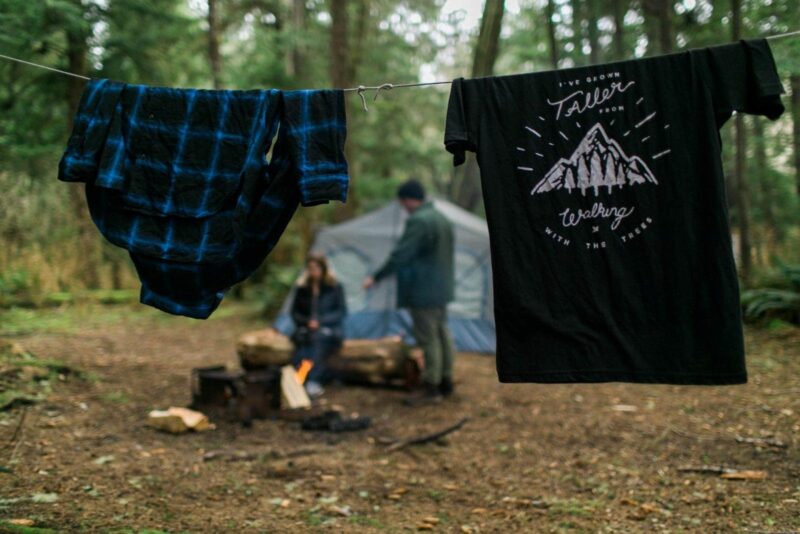
On any camping trip, it’s essential to come prepared with clothing that fits the climate and conditions of your destination.
It’s easy to just bring whatever clothes you normally wear at home, but in some cases more specialized clothing designed for the outdoors can improve your comfort on a camping trip. This is especially true if you plan to do much hiking, biking, running, or other outdoor adventures.
Jacket or Coat
Even if the weather forecast looks good, I’d recommend having at least a light jacket for cool mornings and potential inclement weather. Of course, this becomes even more important during cooler weather trips.
Make sure you have an insulating jacket that’s warm enough for the expected conditions. On many trips it’s also a great idea to have a waterproof rain jacket in case a storm rolls in.
If you’re in the market for a new jacket, you can read our article on the best jacket brands to find some great options.
Pants and shorts
You’ll want comfortable, versatile pants and/or shorts for your camping trip. I’d recommend skipping denim and finding a pair of travel- or hiking-oriented pants. These will usually have some stretch built in, water and stain resistance, and more functional pockets.
I wear the prAna Brion II pants on all my camping trips. They’re super comfy, durable, made of recycled materials, and look good enough to wear to work when I’m not traveling.
Check out our list of the best travel pants for more great recommendations.
T-shirts and Tops
While car camping, you can definitely just wear the same shirts you use every day, but it can be nice to have a shirt designed for being active in the outdoors. Modern outdoor activewear is lightweight, breathable, and better suited to camping than a plain cotton t-shirt.
If you have a bit of cash to spend, I’d definitely recommend trying out a shirt made of merino wool. Made from the ultra-soft fur of merino sheep, this fabric is really a game changer when it comes to hiking and camping.
Merino wool is great at regulating your temperature in hot or cold weather, and is naturally antimicrobial, so it can be worn for days without stinking. That is a great benefit on car camping trips when you may not want to bring a change of clothes for each day.
The Icebreaker Tech Lite II is a fantastic lightweight merino wool t-shirt that will keep you comfortable at camp in all conditions.
Underwear and Socks
Don’t forget extra changes of underwear and socks! You’ve probably heard the advice to avoid cotton clothing for outdoor activities, and this generally holds true for socks and underwear that you wear camping. Cotton doesn’t dry well and can become uncomfortable in the cold or hot.
Try to bring high quality athletic socks and underwear made of synthetic or merino fabric. These materials are breathable and moisture wicking.
Synthetic fabrics can get funky pretty quickly, while merino can go for days without stinking. This is one reason merino is the gold standard for next-to-skin materials for the outdoors.
Darn Tough makes some of the best socks in the business for hiking, running, and other outdoor activities.
Hiking Boots or Shoes
You want to pick footwear that is suitable for the activities you plan to do on your trip. If you’ll be doing much hiking, a good pair of hiking boots or shoes is a must. For hiking, you’ll have to decide whether you want traditional hiking boots or more lightweight trail runner shoes.
Boots are sturdier, more protective, and often waterproof, so they’re a great option if you want a little more support and protection. Read our best hiking boot brands article to get some recommendations.
Trail runners are more lightweight and breathable. I think trail runners are generally more comfortable to wear hiking, but they definitely don’t give the same level of support. You can find some awesome shoes for hiking in our best trail running shoes article.
I own both a pair of boots and breathable trail runners, and I’ll use them for different trips. On colder trips where I expect wet weather I’ll bring my boots, and I prefer trail runners for pretty much everything else.
I’ll also often bring a pair of sandles on car camping trips. Sandals are awesome for letting your feet get some air after a long hike, hanging out around camp, or wearing down to a lake or river.
Gloves
I bring a pair of lightweight gloves on every camping trip, even in warm summer weather. Mornings can be cold at the campsite, and I like to keep my fingers from getting numb.
Something like these Outdoor Research liner gloves should work great for most trips.
Lighting and Electronics
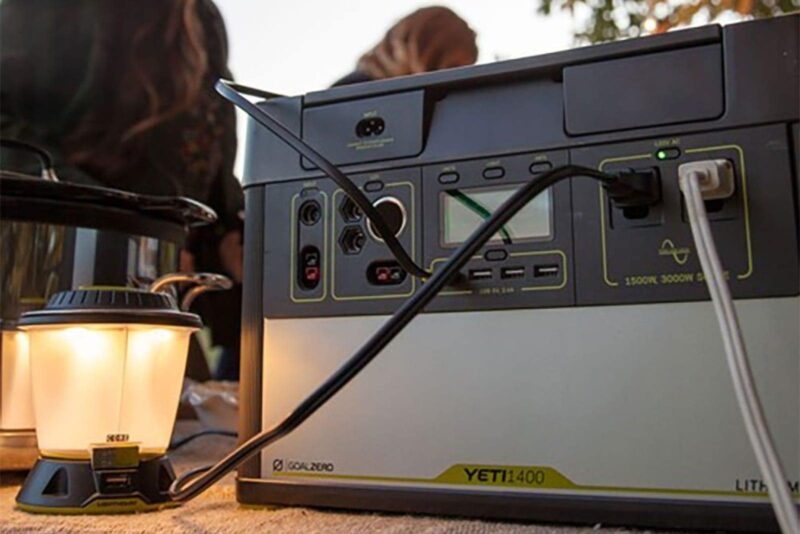
In addition to your phone, there are several electronic devices that can be great to have on your trip. From lighting so you can see at night to a camera to document your adventures, here are the basic electronics you should bring on your next trip.
Headlamp or Flashlight
When night falls, you need a light source to get around your campsite in the dark. There are many great flashlights out there, but I’ve always preferred having a headlamp that lets me keep my hands free for other tasks.
I definitely recommend a headlamp with a built-in rechargeable battery so you don’t have to deal with swapping batteries in and out. Modern lithium batteries are lightweight, compact, and can hold charge for several hours of light.
The Black Diamond Astro R is an awesome headlamp with good light output and battery life while staying affordable.
Lantern
While a headlamp or small flashlight works well for lighting your way around camp, it is definitely nice to set up a lantern to brighten up your whole campsite. Growing up my family had a propane-fueled Coleman lamp that worked well, but it also created a lot of heat, and needing to bring propane for lighting was not ideal.
Nowadays there is a huge range of rechargeable LED lanterns that are great for car camping trips. The Goal Zero Lighthouse Core is a great option with a built-in lithium battery. It puts out 430 lumens of light and, as a bonus, can be used as a power bank to recharge your phone.
Power Bank
You’ll want to keep all your electronics charged, and starting up your car just to charge your phone isn’t usually the best option. There are many compact USB power banks available that can store some extra juice for your phone, headlamp, and other electronics.
The Goal Zero Flip 24 Power Bank is small, lightweight, and has enough capacity for two full charges of most phones. As a bonus, it’s also compatible with Goal Zero’s portable solar panels so you can charge up from the sun.
Camera
It’s always great to have a camera to document your time on the road. My images from trips are priceless, and each tells a story of its own.
You don’t need a fancy camera if you don’t care about getting pro-quality photos. The phone camera in your pocket may be all you ever need.
If you do want to start making higher-quality photography during your adventures, though, it’s definitely worth investing in a good camera. Mirrorless cameras are lightweight and compact and will take your photos to the next level.
Miscellaneous
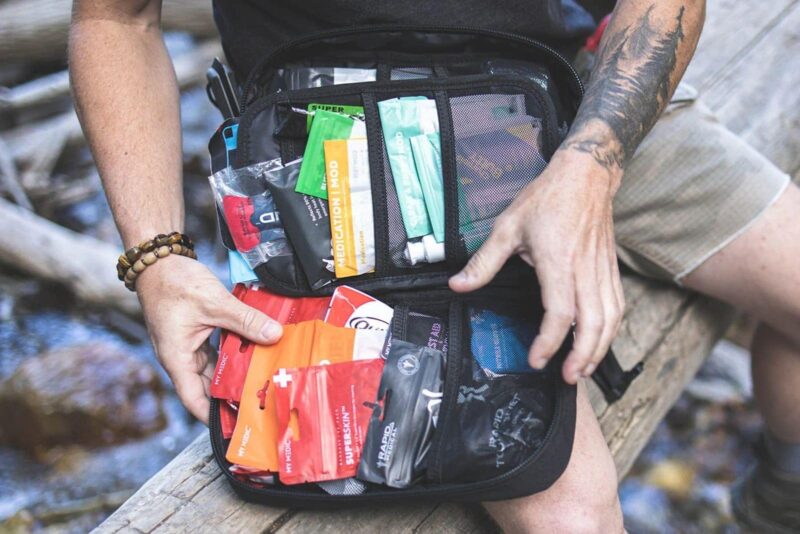
Here are a few more items that don’t fit into other categories, but are definitely good to bring car camping.
First Aid Kit
A well-stocked first aid kit definitely should not be left off your car camping checklist. You want to be prepared for whatever happens on your trip, and a first aid kit is essential for peace of mind.
At a bare minimum, you should have a kit with bandages, sterile wipes, antibiotic ointment, and ibuprofen. The Red Cross has a great list of first aid kit essentials so you can make sure you have what you need.
For a ready-to-go option, MyMedic makes one of the best first aid kits available.
Comfortable Hammock
There’s not much that’s better than relaxing in a hammock at camp. I love bringing a hammock car camping and taking naps or kicking back with a book while swinging in the breeze. For me, the relaxation and comfort make a hammock one of the camping essentials.
Here are a few great products to look at for hanging in comfort:
- The ENO SingleNest is one of the most popular hammocks around, and for good reason. It’s durable, comfortable, and packs down small. There is also a DoubleNest with room for two people.
- The Kammock Roo is another fantastic high-quality hammock.
- There may not always be convenient trees for hanging a hammock at your campsite. Kammock makes an awesome hammock stand that mounts to your vehicle and provides a sturdy structure for hanging a hammock without needing trees.
- Remember you’ll need some sort of straps like the ENO Atlas Hammock Straps to hang your hammock.
America the Beautiful Pass
If you are car camping and enjoy the outdoors, odds are you’ll want to visit federal public land like national parks.
The America the Beautiful National Parks and Federal Recreation Lands Pass is an annual access pass that gets you into all of the national parks as well as national monuments, national forests, national recreation areas, and other public land. In some areas this pass even gets you discounts on campsites.
At just $80 annually, the America the Beautiful pass is a fantastic investment for anyone who wants to explore the outdoors. Just three national park visits in a year are enough to make the pass pay for itself.
Additionally, all proceeds from the pass go toward maintaining national parks and other public land, so it’s a great way to show your commitment to preserving the natural areas you love to visit.
You can purchase an America the Beautiful Pass at the entrance station at most national parks, national monuments, and other federally-managed areas. Just tell them you want to buy the annual pass.
Other Outdoor Gear
On a car camping trip, it’s likely you’ll be doing more than just hanging out around camp. My favorite part about car camping is that it lets me spend the night close to trailheads, lakes, national parks, and other destinations for outdoor adventure.
Whether you plan on hiking, paddleboarding, mountain biking, or skiing, you’ll need to make sure you bring the gear for your outdoor activities. Fitting all your camping gear and equipment for outdoor sports into your car can be a bit of a challenge, but it’s possible with some creativity.
I’ve managed to fit two mountain bikes, a cooler, camp box, tent, and sleeping gear for two people in the back of my Pontiac Vibe, so anything can be done!
Final Thoughts on Car Camping Essentials
The best thing about car camping is that you can make it what you want. You can go ultra-minimalist and have everything you need for cheap, or you can splurge on high-end luxury gear to make camp as comfortable as home.
Hopefully this guide gave you some confidence as you put together your checklist for your next camping trip. There is a lot to think about when going camping, especially if it’s your first time.
My biggest piece of advice is not to stress too much about the gear you bring. Do your best, and if you forget something, you’ll have to figure out a way to do without it and learn from the experience. Remember, going on adventures isn’t all about having the perfect gear setup, it’s about the experiences you have along the way.
I love the freedom car camping gives you to just throw some gear in the back of your car and hit the road. Wherever you’re headed, enjoy the journey!
[ad_2]
Source link

